University Education and Its Purpose Essay
Introduction.
University education refers to a level of education that is offered at universities. This type education normally follows upon a successful completion of education at secondary school or other mid-level colleges and tertiary institutions, students are normally awarded academic degrees after going through an undergraduate or a postgraduate education by the respective universities. University education takes high school, tertiary and college education to a higher level and students are required to major in a major field of study that will form their career once they graduate. It is for this purpose that university education must lead to the development of the learner in all aspects and not just on career development.
When the university education was set up almost a century ago, academicians clearly set the basic function of these institutions to be that of imparting wisdom and enlightenment to the learners and they were meant for the few elite and well-endowed people. Unfortunately, this has not been adhered to in many universities, most of which have now shifted their focus and are now commercialized with many people trooping in to attain a degree in various fields. Though mass university education is a turn of good events, this has diluted its basic function of developing a learner into an all rounded individual, rather, most universities now focus on enabling a leaner achieve an ‘A’ grade. It is no wonder universities base their success is based on the number of graduates who obtain good grades, rather than on the ability of these students to come up with solutions to problems affecting the society.
One of the most important functions of university education is developing the learner’s character and training them on real-life expectations. One might argue that these should be already developed before entering the university, they should, unfortunately, the education systems at pre-university levels do not give the learner an opportunity to discover himself and have an uninterrupted character growth. This is due to congestion in the syllabi as education at this level is more generalized and as a result, learners spend most of their time grasping new ideas given in class. A student gets to have a complete character evolution once he enters the university and it is common for a person who was troublesome in his teenage years get out of university mature and well behaved.
This character modeling, however, must be accompanied by working hard in class to make one more productive in future. Students should not just grasp ideas taught in class for passing exams, classroom sessions should be used to further one’s knowledge in a particular field in a manner that they can apply such skills in real life situations. The classroom knowledge gives one the qualifications to acquire a job, but character is needed to maintain such a job. For example, a person may land a well-paying job but may find himself jobless after a few months due to poor relationship with co-workers or poor work attitude. Character must develop in tandem with one’s academic qualification.
In summary, the main purpose of university education is to impart knowledge to the learners and help them undergo character development. A lack of either of these would lead to a shaky future in the social arena. Universities should also restructure to enable the students undergo both learning processes and not just the classroom knowledge.
- Chicago (A-D)
- Chicago (N-B)
IvyPanda. (2023, October 30). University Education and Its Purpose. https://ivypanda.com/essays/university-education-and-its-purpose/
"University Education and Its Purpose." IvyPanda , 30 Oct. 2023, ivypanda.com/essays/university-education-and-its-purpose/.
IvyPanda . (2023) 'University Education and Its Purpose'. 30 October.
IvyPanda . 2023. "University Education and Its Purpose." October 30, 2023. https://ivypanda.com/essays/university-education-and-its-purpose/.
1. IvyPanda . "University Education and Its Purpose." October 30, 2023. https://ivypanda.com/essays/university-education-and-its-purpose/.
Bibliography
IvyPanda . "University Education and Its Purpose." October 30, 2023. https://ivypanda.com/essays/university-education-and-its-purpose/.
- Time Management in Tertiary Studies
- Person Development Programs in Tertiary Education in Hong Kong
- Effects of Technology on Tertiary Education
- Types of Secondary and Tertiary Packaging
- Accommodation for International Tertiary Students in Australia
- Factors that influence the tertiary education market in Australia
- Comparison of Secondary and Tertiary Waste Water Management
- Tertiary Hospital's Employee Behavior by Maslow
- The Future of the Tertiary Sectors of Economy in Canada
- The Plight of Pharmacists at Tertiary Hospital
- The Education in The Early National Period
- The Concept of a Bachelor’s Degree in Education
- Decision-Making. College or Break After High School
- Reflection of Personal Learning Style in Psychology
- Who Should Go to College

Essays About University: Top 6 Examples and 6 Prompts
Our time in university is often one of the most critical points in our lives; if you are writing essays about university, read our guide.
The Merriam-Webster dictionary defines a university as “ an institution of higher learning providing facilities for teaching and research and authorized to grant academic degrees .” Otherwise known as colleges, universities are the institutions in which students obtain their tertiary education, helping them pursue the careers they want.
Regardless of your university’s prestige, taking your college education seriously is crucial. University prepares you to go into the field you want to work in, and it is regarded as essential for success and prosperity in life. The choices you make in and for university will affect your path forever.
6 Examples of Essays About University
1. compare and contrast between state university and private university by naomi moody, 2. a reflection on my college experience by tori harwell, 3. you don’t need college anymore, says google by david leibowitz, 4. on graduating in a pandemic by audrey huang.
- 5. My University Experience by Jenny
6. From Living for the Later to Living for the Now: A Reflection of My College Career by Trisha Kangas
1. is university really as daunting as it seems, 2. what lessons did your college experience teach you, 3. how did you grow throughout university, 4. the skills you need for university, 5. how can you best prepare for university, 6. is it necessary to attend university.
“Many people assume a public college is cheaper than a private college because of tuition fees are reduced for state residents. But the posted “sticker price” of a private college is rarely the real price. If a private college strongly appeals to you, consider waiting for its financial aid offer before making a final decision. More often than not, private colleges offer the scholarships and grants that significantly cut your actual cost, even bringing it close to the cost of a public college.”
Moody discusses the differences between public and private universities. A state university is more accessible and has various course options, while private university courses often specialize in specific fields and are more challenging to receive an entry. The price difference between public and private universities is more manageable if given financial aid, Moody writes. She believes that although both set students up for success, she is partial to private universities and would instead study in one.
“I used to laugh at the people who told me college would go by in the blink of an eye. And then it did. Soak in every single second of these crazy, chaotic, stressful four years. Spend as much time with your friends as you can. The days go by faster and faster the closer you get to leaving. Take advantage of the time you do have.”
In her essay, Harwell gives tips on how to enjoy their years in university, based on her personal experiences. She encourages readers to take reasonable risks, say “yes,” find the right balance between academics and social life, and get involved to make friends. Most importantly, she wants readers to make the most of their college years and enjoy every moment, just as she did. You might also be interested in these essays about assessment .
“In Google’s report of their IT certification course, 61% did not have a four-year degree, typically complete the program in under six months, and earn a median annual wage of $54,760. To be blunt, university degrees are only as valuable as the weight applied by company hiring managers, and Google has just signaled that a $300 certificate has parity with a diploma.”
Leibowitz describes how university has become obsolete to some. Companies such as Google are allowing job applicants to work without a diploma, instead making them take an IT certification program. Other companies such as Levi’s and Gap have followed suit, allowing employees to complete a program in place of a degree. Leibowitz poses the idea of eliminating degree requirements to make work more accessible.
“Graduation has historically been all about projecting into the future — anticipating what’s to come, cherishing the bright spots within these precious college years, formation and self-discovery in an ever-accelerating landscape. Pandemic graduation seems to be about having the brakes thrown into our plans, and being forced to sit still and alone for a very long time.”
Huang reflects on her university experience in remote learning during the COVID-19 pandemic and imagines the future that her suitemates might live out, and how they have pursued their dreams or changed. Huang is mostly distraught at having to stop her education and an “inferior” graduation experience; however, she is relieved that she can reflect on her time in university, an experience she will treasure for a lifetime.
5. My University Experience by Jenny
“I would like to tell you that coming to Leeds Beckett on the Speech and Language Therapy course has been the best decision for my career, and I’ve had so much fun living here and making new friends. Making the most of my course’s opportunities, as well as all the opportunities Leeds Beckett gives you like volunteering aboard, joining sports teams and everything else is a really valuable experience which you won’t regret. Put in the work and you’ll get loads out of it!”
Jenny, a student at Leeds Beckett University, writes about how she returned to college after graduating in 2014. However, she wanted to pursue a different career, so she attended university again. She writes about her course requirements, job placements, and overall university experience, and she encourages people to try her course or attend her university if they are interested.
Looking for more? Check out these essays about online learning .
“Although it was maybe difficult for me to slow down and give myself a pat on the back for getting on the dean’s list, writing a 15 page short story I was really proud of, or being nominated for the Student Employee of the Year Award, I still did all of those things and that in itself is something to be proud of. And I think that’s where my focus should ultimately end up.”
Kangas reflects on her time in college, writing that she feels accomplished yet anxious simultaneously. She worked hard but remembered not to be too hard on herself, something she encouraged all students to practice. It is important to find a balance between academic achievement and mental health. She also reminds students not to be afraid of change but to have a positive outlook.
6 Helpful Writing Prompts on Essays About University
Many say university entails the toughest years of your life, making children dread going to college. Based on your experiences, write about your experience in university and determine whether this claim is factual or not.
In university, we learn a lot about ourselves and our world. Write about lessons or life skills you may have learned in college and how they have helped you today. Such as becoming more confident, learning to love yourself, connecting with people, or even pursuing new passions in life. Be sure to link your main idea back to how college can help you do better in the future.

For your essay, reflect on your college experience. Answer the question, “how did you grow as a person?” Write about your feelings throughout your university years, particularly how they changed, and describe any skills you may have learned. Be sure to use personal anecdotes for a more heartfelt perspective.
Before attending university, you must equip yourself with specific skills to help you succeed. You must often obtain certain grades in specific classes to enter university. However, you also need personal skills such as communication, time management, and discipline to complete assignments. Write about some of these skills and explain why they are important. You can also explain how to hone these skills to improve your experience at university.

University can be daunting, especially for people leaving high school and moving city or state to attend university. In your essay, discuss how you can prepare yourself, physically and mentally, to attend university. What should college students know before they start the year? Be sure to use your personal experiences as a basis. You can also give examples of books or articles readers can look at for further knowledge.
Many argue that university education has become unnecessary in the 21st century. Many famous entrepreneurs and business owners, such as Elon Musk , speak out against university education, saying that life experience and learning on the job are more valuable. Detail your stance on this issue and explain your reasoning. Be sure to support your argument with details and credible sources.
For help with your essays, check out our round-up of the best essay checkers .
If you still need help, our guide to grammar and punctuation explains more.

Martin is an avid writer specializing in editing and proofreading. He also enjoys literary analysis and writing about food and travel.
View all posts

What Is the Purpose and Future of Higher Education?
A sociologist explores the history and future of higher education..
Posted February 18, 2019 | Reviewed by Jessica Schrader
A recent story asked, “ Can small liberal arts colleges survive the next decade? ” This question is important as we see the closure of some small schools, mostly in areas away from big cities. Yet, as University of California Riverside sociology and public policy distinguished professor Steven G. Brint notes based on his new book Two Cheers for Higher Education , “There’s always been a small number of colleges that close every year—usually fewer than a dozen—and more are opened for the first time than closed.” This illustrates, among other things, why it is important to consider a historical perspective on higher education to place recent individual news stories in context. That’s exactly what his latest book does: It explores the rich history of higher education, leading him to argue that overall higher education appears to be doing quite well, but also that there remain important concerns for higher education on the horizon.
I asked Steven questions about the purpose of higher education, why he argues higher education is doing quite well, and what his concerns are for its future. Anyone interested in the rich history of higher education and how that informs the future of higher education should read this book. Going to college or university is increasingly a fixture and perhaps even an obsession for parents and students, and understanding the history of that industry is useful to help us think about why we encourage students to go to college in the first place.
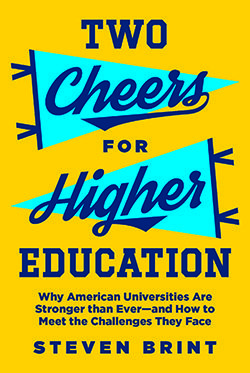
What, in your view, is the purpose of higher education?
The aims of higher education change over time. In the United States, the original purposes were to prepare students for a few “learned professions,” especially the clergy, and to provide a strong, religiously tinged moral education. Many of the activities that we now associate with higher education—extra-curricular clubs, majoring in a defined specialization, faculty research, access for socioeconomically disadvantaged students—came later.
Today, we would have to start by recognizing the fundamental fact that the purposes of higher education are highly differentiated by the stratum in the system institutions occupy. The aims of community colleges are very different from those of research universities. I do not talk about community colleges in the book, though I did write a book on community colleges early in my career . The great majority of the 3,000 or so four-year colleges and universities are primarily devoted to teaching students, mainly in occupational fields that in theory equip graduates to obtain jobs. Students will receive a smattering of general education in lower-division and will have opportunities to participate in extra-curricular activities. The latter are more important for many students than classroom studies. Students hone interpersonal skills on campus, make contacts that can be useful for instrumental purposes as well as ends in themselves. For those who finish, their diplomas do provide a boost in the labor market, more for quantitative fields than for other fields.
Research universities are of course the most complex environments and the range of their activities is difficult to catalog in a short answer. In addition to providing instruction in hundreds of programs, they run hundreds of student clubs and organizations, contribute to the selection of high achieving students for graduate degrees, train and mentor graduate and professional students, produce thousands or tens of thousands of research papers annually, reach out to industrial partners, field semi-professional athletic teams, solve community problems, run tertiary care hospitals, patent new discoveries and attempt to create environments conducive to learning for a very wide variety of students. One could say that these activities, taken together, constitute the enacted purposes of research universities.
However, when you look at their activities from the perspective of public policy, the focus will tend to be on three main purposes: (1) human capital development (in other words, improving the cognitive and non-cognitive skills of students), (2) basic research and research in the national interest, and (3) the provision of access for students from lower-income and under-represented minority backgrounds. Implicitly, Two Cheers for Higher Education focuses more on these primary aims of public policy than on some of the ancillary activities of universities. Of course, some of the activities that could be considered ancillary—such as student clubs and the patenting of new discoveries—are clearly related to these public policy aims. For that reason, I do also discuss them at some length in the book.
At a time when we see stories of colleges closing, why is it that you argue that higher education is doing quite well?
We do see some colleges closing and more colleges merging. There’s always been a small number of colleges that close every year—usually fewer than a dozen—and more are opened for the first time than closed. We do hear a lot of talk about mergers in recent years, and some of the regional public universities in rural areas are definitely struggling. Where population is declining steadily, it becomes harder to make the case for the local college. But population is not declining in urban areas or in suburban areas around big cities. Here we see new colleges rising or existing colleges growing larger. Higher education is doing quite well in the parts of the country that are seeing growth in population and wealth. Sometimes higher education has been an important influence in attracting employers, new jobs, and new wealth. The state of Georgia is an interesting example. It now has the 10th largest economy of the 50 states, and the investments that state leaders and donors have made in Georgia Tech, Emory, the University of Georgia, and Georgia State University have played an important role in the state’s impressive development.
Though your book is largely positive about higher education, you note some concerns about the future of higher education. What are those?
According to public opinion surveys, the major concerns of Americans have to do with cost, the quality of undergraduate education, and liberal bias in the classroom. I address each of these issues in the book. One hopes that criminal justice reform may allow most of the 50 states to invest more heavily in higher education, reducing family’s burdens. I also advocate a universal, income-contingent loan repayment policy similar to the ones that already exist in England, Australia and several other countries. My research has led me to agree with the critics that the quality of undergraduate education is too low for too many. I show in the book how the lessons of the sciences of learning can be embedded without much more than forethought in even large lecture classes. The evidence on liberal bias is mixed. Clearly, minorities remain subject to many discriminatory and wounding acts on college campuses. At the same time, where we find a liberal orthodoxy there’s a risk that assumptions and commitments will substitute for evidence and reasoning. We do need more spaces on campus where contemporary social and political issues can be discussed and debated.
I also discuss what academic and political leaders can do about the threat to the physical campus represented by online competition , by the tremendous growth of campus administrative staff (compared to the slow growth of faculty), and the deplorable increase in poorly-paid and sometimes poorly-prepared adjunct instructors.

I hope that the evidence and recommendations that I provide will stimulate new thinking and action in each of these areas of concern. The U.S. is fortunate to have the strongest system of higher education in the world, but many problems arose during the period I cover. It will be important to address these problems before they undermine public support for institutions that are now central to the country’s future well-being.
Brint, S. G. (2018). Two cheers for higher education: Why American universities are stronger than ever--and how to meet the challenges they face . Princeton, NJ: Princeton University Press.

Jonathan Wai, Ph.D. , is Assistant Professor of Education Policy and Psychology and the 21st Century Endowed Chair in Education Policy at the University of Arkansas.
- Find a Therapist
- Find a Treatment Center
- Find a Psychiatrist
- Find a Support Group
- Find Teletherapy
- United States
- Brooklyn, NY
- Chicago, IL
- Houston, TX
- Los Angeles, CA
- New York, NY
- Portland, OR
- San Diego, CA
- San Francisco, CA
- Seattle, WA
- Washington, DC
- Asperger's
- Bipolar Disorder
- Chronic Pain
- Eating Disorders
- Passive Aggression
- Personality
- Goal Setting
- Positive Psychology
- Stopping Smoking
- Low Sexual Desire
- Relationships
- Child Development
- Therapy Center NEW
- Diagnosis Dictionary
- Types of Therapy

Understanding what emotional intelligence looks like and the steps needed to improve it could light a path to a more emotionally adept world.
- Coronavirus Disease 2019
- Affective Forecasting
- Neuroscience
Home Essay Examples Education University
Benefits Of University Education
- Category Education
- Subcategory Learning
- Topic University

University education is a level of education in this today’s modern education system that train, educate and equip intellectuals in various fields of studies to face workplace challenges. Studying in a university is every academics goal in life. Being a university graduate comes with its wider benefits that are outlined here:
- Cultural and social experiences
- have benefits in workplaces
- learn how to be independent
- graduate salaries are worth it
- make a positive impact on society
- wider employment options
Cultural and social experiences as well as the education, a uni degree provides you the advantage of broadening your limits. Living in a new place will give you the chance to experience a different culture. Engaging yourself in a new environment will teach you many things and give you the opportunity to experience things you wouldn’t otherwise. One of the big parts of university is the people. Going to university is a way to meet people from all across the country. Building relationships with people of different backgrounds and cultures helps make you become a more complete person. Some of the best friends are found at university!.
Our writers can write you a new plagiarism-free essay on any topic
Learn how to be independent. Gaining independence is a big part of a university lifestyle. Not only is it a chance to live away from home, it is the perfect time to encounter new existing experiences in life. Important life skills will be developed which will lead you into later life. Simple things like learning to wash laundry for yourself and taking care of your health make it easier to adjust to adult life after you graduate.
Make a positive impact on the society, the educational and handy skills you acquired in a university will lead you into making a more positive impact on society and the economy. Having a qualified degree means that you are knowledgeable in a certain area or field and this knowledge must be put forward to benefit society. Whether you plan to study to become an engineer or lawyer, a business professional or a health specialist and to obtain a degree that will give you information that not everyone has. Contributing in this way keeps society working.
Graduate salaries are worth it; It is very true that the wage level of a university graduate professional exceeds that of a non-professional. Depending on your degree and area of industry, certain degrees will pay more. However, the further your education the higher the wage is likely to be. Despite the high tuition fees in the university, attending a university and coming out with your degree will be worth more than the money paid for after you secured a job in the workforce.
Wider employment options. University gives you the chance for a career, not just a job. With a degree you will not only have an academic record of your hard work and learning, but a number of valuable skills that gives you an advantage in the job market. It may take some time to get your first job but once you have your foot on the employment ladder there are many job positions available to you. Your employment path doesn’t need to be inflexible but with the things you have learnt you can be more flexible with your job options. The biggest benefit to having a university degree is that it gives you broader career options.
To conclude, having a university level of education is not only about getting better jobs. In the university you are exposed to different cultures and lifestyles and also your tribesman, local community and family are all looking upon you. You are to positively impact your society and not to be an educated fool and university education markets you to the competitive workforce. With these above elaborations on the benefits, I do agree with the question statement that there are much wider benefits of university education for both the individual and the society which the individual lives in.
We have 98 writers available online to start working on your essay just NOW!
Related Topics
Related essays.
By clicking "Send essay" you agree to our Terms of service and Privacy statement . We will occasionally send you account related emails.
By clicking "Receive essay" you agree to our Terms of service and Privacy statement . We will occasionally send you account related emails.
We can edit this one and make it plagiarism-free in no time
We use cookies to give you the best experience possible. By continuing we’ll assume you board with our cookie policy .
The Importance of University Education Essay
- November 10, 2023
- Office of Outreach and Relationships

University education plays a crucial role in today’s society, offering far-reaching benefits beyond the acquisition of a degree. In this essay, we will delve into the significance of higher education, exploring its impact on social and cultural development, networking opportunities, and the development of independence.
Attending university opens doors to a world of possibilities, providing students with invaluable experiences and equipping them with the knowledge and skills necessary for success in the job market. Moreover, university education encourages personal growth, fosters intellectual curiosity, and promotes a global perspective, nurturing open-mindedness. Let’s explore the multifaceted advantages that university education offers individuals and society as a whole.
Key Takeaways:
- University education goes beyond earning a degree and offers numerous advantages.
- It facilitates social and cultural development, allowing students to broaden their understanding of diverse cultures.
- University provides networking opportunities, fostering connections that can lead to future job prospects and collaborations.
- It promotes the development of independence and necessary life skills.
- University education equips individuals with the knowledge and skills needed to succeed in the job market.
Social and Cultural Development
University education offers students numerous opportunities for social and cultural development. By interacting with peers from diverse backgrounds, students gain a deeper understanding and appreciation of other cultures. This exposure fosters tolerance and empathy, essential qualities in today’s global society. Living in close proximity with fellow students also helps develop social skills and independence, as students learn to navigate new relationships and navigate various social situations.
“University provides an environment where students can engage in meaningful social interactions, which leads to personal growth and a broader perspective on the world,” says Dr. Jane Williams, a social psychologist at the University of XYZ. “Through this process, students develop crucial skills such as communication, teamwork, and adaptability, which are highly valued in both personal and professional settings.”
Furthermore, the university experience itself provides a platform for social interactions and personal growth. Extracurricular activities, clubs, and events allow students to connect with like-minded individuals who share their interests. This not only enhances their social life but also encourages personal development and the exploration of new ideas.
Social Skills and Independence
- Interacting with diverse peers
- Developing tolerance and empathy
- Learning to navigate new relationships
- Building communication and teamwork skills
- Fostering independence and personal growth
The Importance of Networking Opportunities in University Education
Networking opportunities play a crucial role in the university experience, providing students with valuable connections and professional relationships that can shape their future careers. Interacting with peers, professors, and industry professionals creates a platform for collaboration, knowledge exchange, and career development. Building a strong network within the university community can open doors to internships, mentorships, and job referrals.
Attending university offers students the chance to connect with individuals who share their interests and aspirations. By engaging in group projects, extracurricular activities, and specialized clubs, students can expand their circle of contacts and cultivate relationships based on common goals and experiences. These connections can be instrumental in navigating the job market and accessing relevant career opportunities.
The Power of Professional Connections
One of the most significant networking benefits of university education is the access to industry professionals and experts in various fields. Professors who have practical experience in their respective industries can serve as valuable mentors and provide guidance on career paths and industry trends. Guest speakers, workshops, and career fairs organized by the university offer students the chance to network with professionals and gain insights into potential career paths.
Networking opportunities in university education not only provide access to job prospects but also serve as a platform for personal growth and development. By connecting with like-minded individuals and industry professionals, students can gain valuable insights, expand their knowledge, and foster long-lasting relationships.
By actively participating in networking events and engaging with professionals, students can establish a reputation within their chosen industry. This can lead to internship opportunities, job offers, and recommendations from respected professionals, ultimately enhancing their employability and career prospects. The power of networking in university education cannot be overstated, as it provides students with a competitive advantage in the job market and a strong foundation for future success.
Development of Independence
In addition to social and cultural development, university education plays a significant role in fostering the development of independence and life skills. Students are faced with the responsibility of managing their own finances, making living arrangements, and tackling daily tasks. This transition from living at home to the university environment is a valuable opportunity for young adults to learn how to navigate the challenges of adulthood.
Living away from home requires students to become self-reliant and organized. They learn to budget their finances, pay bills, and manage their time effectively. The independence gained from these experiences is crucial for personal growth and future success in both personal and professional life.
Moreover, university life presents students with various situations that require problem-solving skills and critical thinking. From resolving conflicts with roommates to managing deadlines and academic pressures, students learn how to confront challenges head-on and find solutions. These experiences shape their ability to adapt to new environments, overcome obstacles, and navigate through the complexities of life.
Knowledge and Skills for the Job Market

Obtaining a university education equips students with the knowledge and skills necessary to excel in the job market. Through rigorous academic programs and specialized coursework, students gain a deep understanding of their chosen field. They acquire theoretical knowledge, practical skills, and critical thinking abilities that are highly valued by employers.
Universities offer a range of programs and courses designed to prepare students for specific industries and professions. Whether it’s engineering, business, healthcare , or arts and humanities, students have the opportunity to develop expertise in their desired career paths. This specialized knowledge gives them a competitive advantage when seeking employment.
In addition to subject-specific knowledge, university education also focuses on developing transferable skills that are applicable across various industries. These skills, such as communication, problem-solving, teamwork, and leadership, are highly sought after by employers. They demonstrate an individual’s ability to adapt and contribute effectively in a professional setting.
Key Skills and Knowledge for the Job Market:
- Technical expertise in specific fields
- Strong analytical and critical thinking abilities
- Effective communication and presentation skills
- Project management and organizational skills
- Ability to work collaboratively in teams
- Leadership and decision-making skills
- Adaptability and willingness to learn
Employers value candidates who possess both the technical knowledge and the broader skill set that comes with a university education. These individuals are equipped to tackle complex challenges, think critically, and contribute innovative ideas to their organizations. A university degree provides a solid foundation for a successful career and opens doors to diverse opportunities in the job market.
The knowledge and skills acquired through a university education go beyond just securing a job. They lay the groundwork for long-term career growth and professional development. Graduates are equipped with the tools to adapt to changing industry trends, embrace new technologies, and continue learning throughout their careers. This ability to stay ahead of the curve is crucial in today’s rapidly evolving job market.
By investing in a university education, individuals gain not only the knowledge and skills needed to succeed in their chosen field but also the confidence to pursue their aspirations. They become well-rounded individuals prepared to make a positive impact in their careers and society as a whole.
Personal Growth and Intellectual Curiosity
University education is not just about acquiring knowledge; it is a transformative journey that fosters personal growth and intellectual curiosity. Through a variety of academic and extracurricular activities, students have the opportunity to explore their interests, challenge their assumptions, and develop a deeper understanding of themselves and the world around them. The pursuit of higher education ignites a passion for lifelong learning and opens doors to new possibilities.
One of the key aspects of personal growth in university is the development of critical thinking skills. Students are encouraged to question, analyze, and evaluate information from various perspectives. This cultivates a habit of deep reflection and a capacity for independent thought. Through engaging with diverse academic disciplines, students broaden their horizons and develop a well-rounded intellectual foundation.
Intellectual curiosity is another essential element of university education. Students are encouraged to explore topics outside of their comfort zones and delve into new areas of knowledge. The university environment provides access to expert faculty, libraries, and research facilities, enabling students to satisfy their intellectual curiosity and pursue their passions. This thirst for knowledge drives innovation, creativity, and a deeper understanding of the complexities of the world.
Global Perspective and Open-mindedness
University education plays a crucial role in fostering a global perspective and cultivating open-mindedness. Through exposure to various ideas, perspectives, and cultures, students gain a deeper understanding of the world around them. This broadening of horizons goes beyond academic learning, shaping individuals into more tolerant and empathetic global citizens.
By interacting with students from diverse backgrounds, university students develop cultural sensitivity and learn to appreciate different viewpoints. This exposure helps break down stereotypes and encourages dialogue, leading to a richer and more inclusive learning environment. As students engage in intellectual discussions and collaborate on projects, they gain insights from their peers’ unique experiences, challenging their own beliefs and expanding their perspectives.
“University education provides a platform for students to step out of their comfort zones and embrace new ideas. It paves the way for personal growth and equips graduates with the skills to navigate an increasingly interconnected world.”
Moreover, the university experience often includes opportunities for international study programs, allowing students to immerse themselves in different cultures and gain firsthand experience of global diversity. These experiences develop a sense of global citizenship, promoting cross-cultural understanding and empathy. Students learn to navigate cultural differences, adapt to new environments, and appreciate the value of diversity in tackling global challenges.
Financial Benefits and Opportunities
The financial benefits of obtaining a university education are significant. Graduates with a degree often enjoy greater earning potential and increased job opportunities. According to recent studies, individuals with a bachelor’s degree earn, on average, 66% more than those with only a high school diploma. This higher income level not only provides financial stability but also opens doors to a better quality of life and increased opportunities for personal and professional growth.
Furthermore, a university degree can lead to a wide range of career options and advancement opportunities. Many professions require a specific level of education, and having a degree can make a candidate more competitive in the job market. Employers often view individuals with higher education qualifications as more knowledgeable, skilled, and committed. This advantage can help graduates secure desirable positions and progress further in their chosen fields.
Additionally, a university education provides individuals with the skills and knowledge necessary to succeed in today’s dynamic and ever-changing work environment. With the rapid advancement of technology and globalization, the job market demands individuals who are adaptable, innovative, and capable of continuous learning. University graduates are equipped with critical thinking skills, problem-solving abilities, and a strong foundation in their chosen disciplines, making them better prepared to navigate the challenges and complexities of the modern workplace.
The financial benefits of a university education can include:
- Higher earning potential
- Better job opportunities
- Increased career advancement prospects
- Enhanced financial stability
“Investing in a university education is not just an expense; it is an investment in your future. The benefits of higher earnings and career opportunities far outweigh the initial costs of tuition and fees.” – [Author Name]
By obtaining a university education, individuals not only gain valuable knowledge and skills but also position themselves for long-term financial success and a fulfilling career.
Personal Fulfillment and Growth

The pursuit of a university education offers individuals a pathway to personal fulfillment and growth. It provides an environment that encourages self-discovery, exploration of passions, and the development of a sense of purpose. By immersing themselves in various subjects and disciplines, students have the opportunity to uncover their talents and strengths, allowing them to pursue their passions. This personal fulfillment comes from the satisfaction of acquiring knowledge and skills in areas that genuinely interest them, fostering a deep sense of fulfillment and contentment.
Furthermore, university education nurtures personal growth by fostering critical thinking, analytical skills, and intellectual curiosity. Through rigorous coursework, students are challenged to question assumptions, analyze complex problems, and explore different perspectives. This not only broadens their understanding of the world but also helps them develop a well-rounded and adaptable mindset. The university experience empowers individuals to think independently, develop their own opinions, and engage in intellectual discourse, contributing to their personal growth on an intellectual and emotional level.
In addition, university education provides opportunities for personal growth beyond the academic realm. It allows students to participate in extracurricular activities, join clubs and organizations, and engage in community service. These experiences foster personal development by building leadership skills, enhancing interpersonal relationships, and developing a strong sense of social responsibility. The diverse range of opportunities available on campus encourages students to step out of their comfort zones, challenge themselves, and discover new passions, leading to personal growth and self-discovery.
Job Market Competitiveness
A university degree provides individuals with a clear advantage in today’s highly competitive job market. Employers often prioritize candidates with higher education qualifications, recognizing the knowledge, skills, and commitment that come with a degree. Having a university education can significantly increase job prospects and enhance employability.
With the rapidly evolving nature of industries, employers seek individuals who can adapt to new technologies, embrace change, and continue to learn. A university education instills a love for learning and equips graduates with the necessary skills to adapt to evolving job requirements. Lifelong learning is crucial in staying competitive and ensuring long-term career success.
Furthermore, a university degree not only provides specialized knowledge in a particular field but also equips graduates with transferable skills that are highly valued in the job market. These skills, such as critical thinking, problem-solving, communication, and teamwork, are applicable across various industries and can give individuals a competitive edge in securing employment.
Advantages of a Degree:
- Increased job prospects and employability
- Acquisition of transferable skills
- Enhanced adaptability and lifelong learning
- Recognition of commitment to personal and professional development
In conclusion, a university degree offers distinct advantages in the job market. It not only provides specialized knowledge but also equips individuals with transferable skills and a commitment to lifelong learning. By embracing higher education, individuals can position themselves competitively for career opportunities and navigate the ever-changing job market with confidence.
Lifelong Learning and Adaptability
A university education plays a crucial role in fostering lifelong learning and adaptability. In today’s rapidly evolving world, individuals must constantly acquire new knowledge and skills to stay relevant and succeed in their careers. Through academic pursuits, students are exposed to diverse subjects and learning experiences that ignite their intellectual curiosity and foster a love for learning.
Universities provide an environment conducive to intellectual growth, where students can delve deeper into their areas of interest and develop critical thinking skills. They learn to analyze and evaluate information, make informed decisions, and solve complex problems. These skills are not only valuable for academic success but also for adapting to the ever-changing demands of the professional world.
“The future belongs to those who are willing to embrace lifelong learning and adapt to new challenges.”
Embracing Continuous Learning
Moreover, a university education equips individuals with the tools to adapt to technological advancements and emerging trends. As new technologies emerge and industries evolve, individuals with a foundation in higher education are better equipped to navigate these changes. They possess the ability to learn new skills quickly and apply them effectively in a variety of contexts.
The adaptability fostered through a university education goes beyond technical skills. The experience of navigating a diverse campus environment, collaborating with peers from different backgrounds, and engaging with professors and industry professionals enhances interpersonal and communication skills. This adaptability allows individuals to thrive in cross-cultural settings and effectively collaborate with diverse teams in the globalized workforce.
Personal and Professional Networking
The university environment provides ample opportunities for personal and professional networking. Building connections with classmates, professors, alumni, and industry professionals can open doors to internships, mentorships, and job referrals. These networks can greatly enhance career prospects and personal growth.
Personal networking within the university community allows students to engage with their peers and create lasting relationships. By participating in clubs, organizations, and extracurricular activities, students have the chance to meet individuals who share similar interests and aspirations. These connections can provide support, guidance, and valuable friendships throughout their academic journey and beyond.
“Networking is not about just connecting people. It’s about connecting people with people, people with ideas, and people with opportunities.” – Michele Jennae
Moreover, establishing professional networks with professors and industry professionals can significantly contribute to students’ career advancement. Professors often have extensive knowledge and experience in their respective fields and can provide guidance, mentorship, and valuable insights. Building relationships with professors can lead to research opportunities, recommendation letters, and even collaboration on projects or publications.
Networking events, career fairs, and alumni associations further facilitate personal and professional connections. Attending these events allows students to interact with industry professionals, learn about job opportunities, and gain valuable insights into their chosen field. Alumni associations offer a supportive network of graduates who can provide guidance, mentorship, and job referrals.
Benefits of personal and professional networking:
- Access to internship and job opportunities
- Mentorship and guidance from industry professionals
- Insights into different career paths and industries
- Collaborative opportunities with peers and professors
- Increased visibility and reputation within your field
In conclusion, university education plays a crucial role in personal growth, professional success, and societal development. It offers a multitude of advantages that go beyond obtaining a degree. Through university education, individuals have the opportunity to experience social and cultural development, expand their network, develop independence, gain knowledge and skills for the job market, and achieve personal fulfillment.
Attending university allows students to interact with people from diverse backgrounds, fostering social skills and a deeper understanding of other cultures. The connections made during this time can lead to future job opportunities and collaborations, shaping one’s career path. Additionally, university life instills independence as students learn to take responsibility for their finances, living arrangements, and daily tasks.
Furthermore, a university education equips individuals with the knowledge and skills required for the job market, enhancing their employability and earning potential. It fosters personal growth and intellectual curiosity, encouraging critical thinking and creativity. The exposure to diverse ideas and perspectives also promotes open-mindedness and a global perspective. Moreover, university education opens doors to financial benefits and opportunities, providing graduates with greater financial stability and the chance for a better quality of life.
In today’s competitive job market, a university degree gives individuals a competitive edge, as employers value higher education qualifications. University education also promotes lifelong learning and adaptability, crucial skills in an ever-changing world. Lastly, the university environment offers ample opportunities for personal and professional networking, which can greatly enhance both career prospects and personal growth.
What are the advantages of university education?
University education offers numerous benefits, including social and cultural development, networking opportunities, independence, knowledge and skills for the job market, personal fulfillment, and lifelong learning.
How does university education contribute to social and cultural development?
University students have the opportunity to meet people from diverse backgrounds, broadening their understanding of other cultures. Living in close proximity to fellow students fosters social skills and independence, creating a platform for social interactions and personal growth.
How does university education provide networking opportunities?
Attending university offers students the chance to develop valuable networks and connections. Interacting with peers, professors, and professionals in their field of interest can lead to future job opportunities and collaborations, shaping one’s career path.
What skills are developed through university education?
University life requires students to take responsibility for their own finances, living arrangements, and daily tasks. Living away from home and managing these responsibilities fosters independence and the development of crucial life skills, such as organization, self-reliance, and problem-solving.
How does university education contribute to the job market?
University education provides students with the knowledge and skills needed for the job market. Employers value individuals with a higher education background, as it demonstrates a commitment to learning and a broad understanding of their field. A university degree opens doors to better job opportunities and higher earning potential.
How does university education foster personal growth and intellectual curiosity?
University education encourages personal growth and intellectual curiosity by offering the opportunity to explore various subjects, delve deeper into areas of interest, and expand knowledge. This fosters critical thinking, creativity, and a lifelong passion for learning.
How does university education promote a global perspective and open-mindedness?
University education exposes students to a diverse range of ideas, perspectives, and cultures. This broadens their worldview and fosters open-mindedness, enabling them to understand and appreciate different viewpoints, which is a valuable skill in today’s interconnected and multicultural world.
What are the financial benefits of university education?
Graduates with a university education often have greater earning potential and financial stability. A degree can lead to higher-paying jobs and career advancement opportunities. Additionally, university-educated individuals have a better chance of achieving financial independence and improving their quality of life.
How does university education contribute to personal fulfillment and growth?
University education offers personal fulfillment and growth by allowing individuals to pursue their passions, hone their talents, and develop a sense of purpose. The pursuit of knowledge and the opportunity to contribute to society can bring immense satisfaction and fulfillment.
How does a university degree enhance job market competitiveness?
In today’s competitive job market, a university degree can give individuals a competitive edge. Employers often prioritize candidates with higher education qualifications, viewing them as more knowledgeable, skilled, and committed. A degree can increase job prospects and enhance one’s employability.
How does university education prepare individuals for lifelong learning?
University education instills a love for learning and equips individuals with the skills to adapt to changing circumstances. The ability to acquire new knowledge, adapt to new technologies, and embrace continuous learning is crucial in the rapidly evolving world. A university education prepares individuals for lifelong learning.
How does university education facilitate personal and professional networking?
Source links.
- https://www.123helpme.com/essay/Advantages-Of-University-Education-Essay-529348
- https://www.375degrees.com/essay-about-importance-of-university-degree.html
- https://www.123helpme.com/essay/Why-Is-University-Education-Necessary-For-Successful-PJQ7K7SWBG
Related Posts

Romanian Academic Expedition: Strategies for Higher Education Success
Embark on your Romanian Academic Expedition: Strategies for Higher Education Success to unlock opportunities and achieve academic excellence.

Portuguese Achievements: A Guide to Higher Learning
Unlock Portugal’s educational landscape with “Portuguese Achievements: A Guide to Higher Learning,” your roadmap to success.
- IELTS Scores
- Life Skills Test
- Find a Test Centre
- Alternatives to IELTS
- Find Student Housing
- General Training
- Academic Word List
- Topic Vocabulary
- Collocation
- Phrasal Verbs
- Writing eBooks
- Reading eBook
- All eBooks & Courses
- Sample Essays
- University Essay
IELTS Free University Education Essay
The issue of free university education is an essay topic that comes up in the IELTS test. This essay therefore provides you with some of the key arguments about this topic.
The essay is an agree / disagree essay , which means you are given one opinion and then asked if you agree with it or not.
So remember to make it clear in your essay which side you are on.
University education should be free to everyone, regardless of income.
To what extent do you agree or disagree?
Choosing a Side
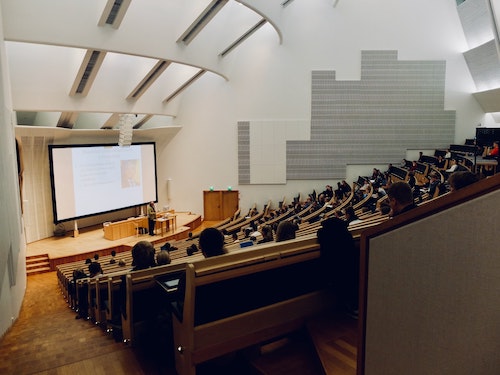
Of course you don't have to firmly come down on one side - you could partly agree if there are some aspects of the arguments you agree with but some parts you disagree with.
In this essay, the writer believes free university education is the best policy, so s/he agrees with the opinion. This is made clear in the conclusion (though you can put your opinion in the introduction as well if you wish).
The writer presents both sides of the argument . This is a good idea as you may find it more difficult to come up with a lot of ideas for one side of an argument. It also shows you are able to see both sides of the argument - a good academic skill.
Free University Education Essay
You should spend about 40 minutes on this task.
Write about the following topic:
Give reasons for your answer and include any relevant examples from your own experience or knowledge.
Write at least 250 words.
Model Answer:
Over recent years, more and more people have been attending university and arguments have persisted as to whether students should pay for this privilege not. Although there are convincing arguments on both sides, I strongly believe that it should be free.
One argument put forward in favour of charging students is that education is becoming more expensive to fund as universities grow in size. Consequently, making students pay may maintain standards and ensure the quality of the teaching. In addition, it is argued that most students benefit from university in terms of higher paid jobs, so it is fair that they pay for at least some of the cost, especially given that the majority of students attending university are from the middle classes. Last but not least, in many countries, there is a shortage of people to do manual jobs such as plumbing and carpentry, so making university more expensive may encourage people to take up these jobs.
However, there are a number of arguments in favour of making university education free for all. Firstly, it will encourage more people to attend and this will benefit society. This is because it will lead to a more productive and educated workforce. Research has generally shown that those countries that have a better educated population via university have higher levels of innovation and productivity. In addition, there is the issue of equality of opportunity. If all students are required to pay, those on a low income may be dissuaded from attending, thus making it unfair. The reason for this is that they will likely not be able to secure financial support from their family so they will be concerned about the debts they will incur in the future.
In conclusion, I am of opinion that all education should remain equally available to all regardless of income. This is not only fair, but will also ensure that countries can prosper and develop into the future with a well-educated workforce.
<<< Back
Next >>>
More Agree / Disagree Essays:

Human Cloning Essay: Should we be scared of cloning humans?
Human cloning essay - this is on the topic of cloning humans to use their body parts. You are asked if you agree with human cloning to use their body parts, and what reservations (concerns) you have.

Technology Development Essay: Are earlier developments the best?
This technology development essay shows you a complex IELTS essay question that is easily misunderstood. There are tips on how to approach IELTS essay questions

Extinction of Animals Essay: Should we prevent this from happening?
In this extinction of animals essay for IELTS you have to decide whether you think humans should do what they can to prevent the extinction of animal species.

Examinations Essay: Formal Examinations or Continual Assessment?
Examinations Essay: This IELTS model essay deals with the issue of whether it is better to have formal examinations to assess student’s performance or continual assessment during term time such as course work and projects.

Ban Smoking in Public Places Essay: Should the government ban it?
Ban smoking in public places essay: The sample answer shows you how you can present the opposing argument first, that is not your opinion, and then present your opinion in the following paragraph.

Dying Languages Essay: Is a world with fewer languages a good thing?
Dying languages essays have appeared in IELTS on several occasions, an issue related to the spread of globalisation. Check out a sample question and model answer.

IELTS Internet Essay: Is the internet damaging social interaction?
Internet Essay for IELTS on the topic of the Internet and social interaction. Included is a model answer. The IELTS test usually focuses on topical issues. You have to discuss if you think that the Internet is damaging social interaction.

Truthfulness in Relationships Essay: How important is it?
This truthfulness in relationships essay for IELTS is an agree / disagree type essay. You need to decide if it's the most important factor.


Essay for IELTS: Are some advertising methods unethical?
This is an agree / disagree type question. Your options are: 1. Agree 100% 2. Disagree 100% 3. Partly agree. In the answer below, the writer agrees 100% with the opinion. There is an analysis of the answer.

IELTS Sample Essay: Is alternative medicine ineffective & dangerous?
IELTS sample essay about alternative and conventional medicine - this shows you how to present a well-balanced argument. When you are asked whether you agree (or disagree), you can look at both sides of the argument if you want.

IELTS Vegetarianism Essay: Should we all be vegetarian to be healthy?
Vegetarianism Essay for IELTS: In this vegetarianism essay, the candidate disagrees with the statement, and is thus arguing that everyone does not need to be a vegetarian.

Paying Taxes Essay: Should people keep all the money they earn?
Paying Taxes Essay: Read model essays to help you improve your IELTS Writing Score for Task 2. In this essay you have to decide whether you agree or disagree with the opinion that everyone should be able to keep their money rather than paying money to the government.

Airline Tax Essay: Would taxing air travel reduce pollution?
Airline Tax Essay for IELTS. Practice an agree and disagree essay on the topic of taxing airlines to reduce low-cost air traffic. You are asked to decide if you agree or disagree with taxing airlines in order to reduce the problems caused.
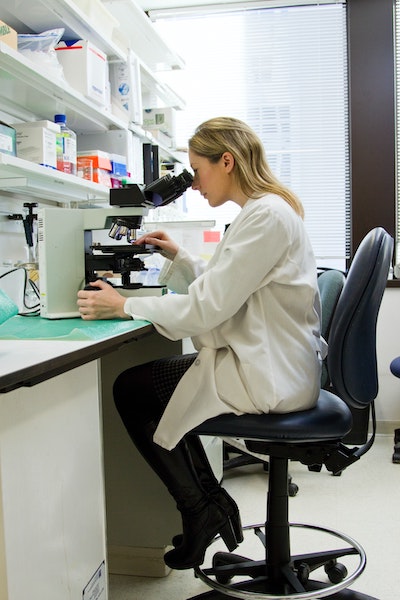
Scientific Research Essay: Who should be responsible for its funding?
Scientific research essay model answer for Task 2 of the test. For this essay, you need to discuss whether the funding and controlling of scientific research should be the responsibility of the government or private organizations.
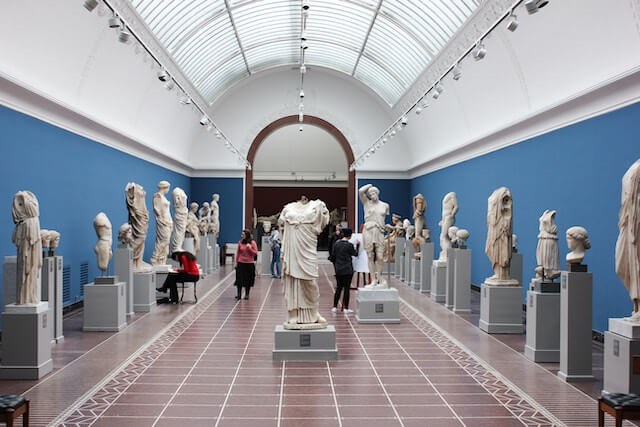
Return of Historical Objects and Artefacts Essay
This essay discusses the topic of returning historical objects and artefacts to their country of origin. It's an agree/disagree type IELTS question.

Employing Older People Essay: Is the modern workplace suitable?
Employing Older People Essay. Examine model essays for IELTS Task 2 to improve your score. This essay tackles the issue of whether it it better for employers to hire younger staff rather than those who are older.
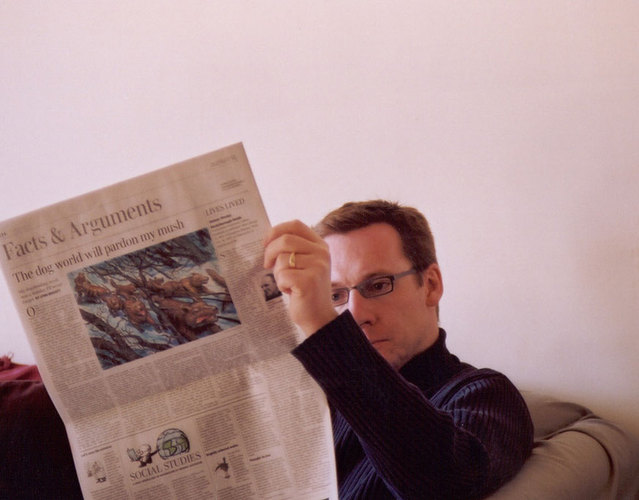
Internet vs Newspaper Essay: Which will be the best source of news?
A recent topic to write about in the IELTS exam was an Internet vs Newspaper Essay. The question was: Although more and more people read news on the internet, newspapers will remain the most important source of news. To what extent do you agree or disagree?
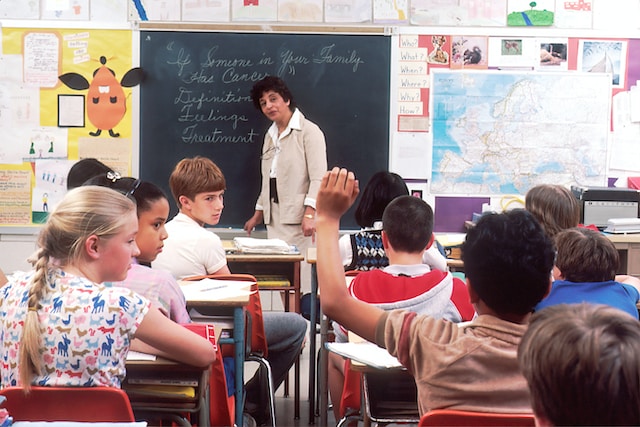
Role of Schools Essay: How should schools help children develop?
This role of schools essay for IELTS is an agree disagree type essay where you have to discuss how schools should help children to develop.

Multinational Organisations and Culture Essay
Multinational Organisations and Culture Essay: Improve you score for IELTS Essay writing by studying model essays. This Essay is about the extent to which working for a multinational organisation help you to understand other cultures.

Sample IELTS Writing: Is spending on the Arts a waste of money?
Sample IELTS Writing: A common topic in IELTS is whether you think it is a good idea for government money to be spent on the arts. i.e. the visual arts, literary and the performing arts, or whether it should be spent elsewhere, usually on other public services.
Any comments or questions about this page or about IELTS? Post them here. Your email will not be published or shared.
Before you go...
Check out the ielts buddy band 7+ ebooks & courses.

Would you prefer to share this page with others by linking to it?
- Click on the HTML link code below.
- Copy and paste it, adding a note of your own, into your blog, a Web page, forums, a blog comment, your Facebook account, or anywhere that someone would find this page valuable.
Band 7+ eBooks
"I think these eBooks are FANTASTIC!!! I know that's not academic language, but it's the truth!"
Linda, from Italy, Scored Band 7.5

IELTS Modules:
Other resources:.
- All Lessons
- Band Score Calculator
- Writing Feedback
- Speaking Feedback
- Teacher Resources
- Free Downloads
- Recent Essay Exam Questions
- Books for IELTS Prep
- Student Housing
- Useful Links

Recent Articles
Latest IELTS Writing Topics - Recent Exam Questions
Apr 04, 24 02:36 AM

IELTS Essay: English as a Global Language
Apr 03, 24 03:49 PM

Alternatives to the IELTS Exam
Mar 22, 24 12:32 PM
Important pages
IELTS Writing IELTS Speaking IELTS Listening IELTS Reading All Lessons Vocabulary Academic Task 1 Academic Task 2 Practice Tests
Connect with us
Copyright © 2022- IELTSbuddy All Rights Reserved
IELTS is a registered trademark of University of Cambridge, the British Council, and IDP Education Australia. This site and its owners are not affiliated, approved or endorsed by the University of Cambridge ESOL, the British Council, and IDP Education Australia.

IELTS 18 model answer on university studies
Ielts discussion essay model answer about university studies..
This model answer is based on the topic of university education and whether students should learn about other subjects. It’s a discussion essay so I need to cover both sides and give my clear opinion.
The task was taken from the Cambridge IELTS 18 book. As I have stated before in earlier posts, use authentic IELTS material when you are practicing. You can get these from the Cambridge IELTS books, the most recent being IELTS 18.
In terms of the structure, you should write about what both sides think of the topic and give your opinion, so decide on one side only. Do not agree with both sides as it may confuse the reader (the examiner). Below is an example of a structure that you can use to help get a good band score.
Useful discussion essay structure

Model Answer
Some university students want to learn about different subjects in addition to their main subjects. Others believe it is more important to give all their time and attention to studying for a qualification. Discuss both these views and give your opinion.
Some students in university think it is better to devote most of their time to getting a specific qualification, whereas others would like to divide their time between learning other subjects and studying for their degree. This essay argues that it is important for undergraduates to study a variety of courses to best prepare themselves for the future.
On the one hand, some students would argue that dedicating all of their time to a specific subject will lead to greater expertise and better career prospects. This is because they feel that they have a much better chance of mastering their chosen area of expertise if they focus solely on being the best in that field without other distractions. For example, if a student is doing a degree in computer science, they may think that focusing on coding, algorithms, and Ai systems will make them more competitive in the IT job market. I believe this is true to an extent but university students need a wider range of skill sets.
On the other hand, other students desire a broader educational experience for their future job prospects. This is because they believe learning subjects beyond the core specialisation can help to develop broader thinking and problem-solving skills. For instance, if someone is studying psychology they may feel that if they take a course in nutrition, it will help them make a deeper connection to how cognition and temperament are directly linked to a healthy or unhealthy diet. I think that this holistic approach is important for a well-rounded university education and leads to greater chances of employment after graduation.
In conclusion, although views differ, I believe that universities should encourage students to explore a variety of subjects to enrich their educational experience and improve their career prospects.
294 words / IELTS 18 book
I have used the word students 6 times and the word subjects 4 times. Some people think that it’s repetition but this is fine actually. It’s difficult to find a synonym for the word ‘ students ‘ so I just kept the word. If possible use referencing or omission if you don’t want to keep repeating words.
https://ieltsfocus.com/2018/04/22/referencing-avoiding-repetition/
You must state your opinion in the thesis statement, which is in the introduction. Also, make sure to state your opinion in the body paragraphs as well as the conclusion.
In the conclusion you can write ‘although views differ / despite differing views’ and then rephrase your opinion. Make sure you paraphrase your opinion from the introduction, don’t repeat the same words.
Leave a comment if you have any questions.
Leave a comment cancel reply.
University Education Essay
This university education essay example will precisely discuss higher education in the United States in regards to diversity, access and the role of the marketplace. As a university education, argumentative essay most of the issues discussed will revolve around pertinent issues employers are raising in regards to graduates released in the job market. American education is considered as one of the best in the world. Compared to other universities globally its universities have the most lucrative degree programs.
To achieve such status the National Department of Education has continually established strong structures which protect the quality of education offered in the universities. I will continue my university education essay writing with a discussion of private and public universities.
Both private and public universities are committed to offering quality education and give more students to opportunity to learn in their institutions. Most of higher education institutions in US have different fee structures but the difference is not huge. The cost of degree program depends with the degree you intend to pursue. For example, lucrative degrees like medicine, neurosurgeon, and engineering cost more compared to other degrees offered in the same universities. In this university education argumentative essay we will analyze some key data.
The National Department of Education in the US is responsible for setting guidelines relating to general education policy. NDE collects data, awards subsidies, and scholarships but it has limited influence on the content, learning outcomes and quality of education. Powers to deal with such issues is given to individual states but the states partially are responsible for higher education policies. University education essay topics are not often discussed by politicians during their campaigns.
In the United States, there are over 4000 higher education public and private institutions. Higher education course applicant must understand that the fact that a university is public or private, there is no guarantee of quality on programs offered. The only difference between universities and college is that a university offers both graduate and undergraduate programs. The colleges only offer undergraduate programs.
Admission To Higher Education
American higher education institutions have large variations in level and qualities. For example, each university has a different entrance requirement and the requirement is characterized by the degree of selectivity applied by the student. Contrary, low spectrum universities have open admission policy selection criteria. Such institutions generally accept all students who apply as long as they have a high school or GED Diploma and over the age of 18 years.
High spectrum offers a small number of selective institutions that a student can select. The selection criteria involve the level, program content, and student’s performance during the last 4 years of high school. SATs and other entrance are also considered during selection, if a student has been active in extra-curricular activities or he has evidence of leadership qualities and other letters of recommendation the university considers him or her for degree course applied.
Most American Universities lie between the two extremes. It is important for students to note that the selectivity of individual institution selection criterion does not determine the institution’s degree course’s quality. Times, the selection process can take place during the degree program or during the admission process. For instance, an institution can have an open doors policy but have a small number of students obtaining a diploma. It depends on a student’s determination to attain the best grades for him or her to proceed the next step.
The American university/higher education system is characterized by inclusiveness. Anyone who wishes or desires to undertake any higher education course can do so. The education system has made it possible for everybody with a high school diploma to qualify to undertake any program offered by universities. In addition, the status at which the decision is derived from the fact someone has completed his or her higher education but rather at which institution and at which level.
As per certificates acquired, there is no strict distinction between higher professional and academic education. In one institution, the two programs can be combined in a degree program. Bachelor students are given an opportunity to choose from a variety of electives. This means that professionally-oriented majors can be supplemented by subjects of a more academic nature and vice versa. This university education essay outlines degrees offered and their levels.
Higher Education Degrees
United States education has no major difference between academic education and higher professional education. In a summary provided in this essay for university education, will discuss most commonly awarded degrees. The degrees can be both attained in either type of education.
Associate Degree
The Associate degree is a two-year program is specifically offered by junior colleges or community colleges. Contrary, in universities, the degree can take four years. To have an Associate degree there are two types that help you. One of them is predominantly vocationally- oriented programs. The programs help in preparing a student for immediate employment. The other program is the transfer program. This program can be either vocational or general in nature but must have enough liberal arts subjects. Liberal art subjects include English, Science, Social Sciences and others. The subjects allow a student transfer to the third year of a bachelor’s program only after he or she has obtained his or her associate’s degree.
Generally, the name of the associate degree program often is followed by an indication which specifies if you are doing art or science program. For science program, other degree’s name should be Associate in Science (AS) while for arts program should be Associate Arts (AA). The next issue in my essay about university education is Bachelor’s degree.
Bachelor’s Degree
A student is awarded a bachelor’s degree after four years in college or university. The undergraduate program is normally expressed in a minimum number of credits. Bachelor’s degree program consists of general subjects like liberal arts and electives. The electives may not be related to the major. The degree is characterized by progression from a broad perspective to increased specialization. Four years of liberal arts are not an uncommon scenario.
Fourth-year students pursuing a bachelor’s degree in some institutions must take a methodology and a complete research project or bachelor’s thesis. The duration can be longer with few months if an internship is part of the program. As soon as you reach the required credits, you are awarded a bachelor’s degree certificate. The certificate comes with a prescribed division as per to level and content. In this course, there is no final exam. Just like the associate degree, the name of the degree is followed by indication if it art or science. For example, if you have been awarded an arts degree program your degree will be Bachelor of Arts (BA) and for science program, your degree will be Bachelor Science (BS or BSC). Majority of American bachelor’s programs in terms of contents are partially comparable in many other countries. This means that an American Bachelor degree holder can work at any place in the world. The Bachelor degree program is designed in a manner that helps the holder not to limit himself or herself in the American job market. My essay for university education will now go to the advanced degrees.
Master’s Degree, Doctor Of Philosophy (Phd) & Advanced Degree
After you have completed your bachelor’s degree you then pursue, master’s degree then doctor of philosophy and finally advanced degree. These degrees are highly valued in our society because individuals who have pursued them get high salaries. In addition, prestige comes after being honored with degrees. For example, an individual who has PhD in STEM related subjects; he or she is likely to earn much compared to a person with degree in arts. I will now continue this university education argumentative essay with the issue of graduates.
Are The Graduates Ready For The Job Market?
This university education essay example will point out key issues employers are raising in regrads to university graduates. Graduates are spending a lot of yours in lecture halls only to discover once they have landed to the job are not fit to deliver services as expected. Career experts advise students to first to have careful study finding mission on the career they choose. One of the best ways to determine if they are entering the right field is to have a chart with potential employers about the position. Such a move will help them know their potential employer’s expectations. It is sad that universities are not providing students with these resources. This will help the students to determine if the career suits them prior to graduating.
Many employers of late have raised concern on how the universities are preparing graduates for the job market. The global job market is dynamic and the universities must progressively update their learning experiences they are exposing their students. Most employers have said that graduates are simply not good enough and they do not meet their expectations. Employers are spending more than $5,000 to retrain graduates before absorbing them in their workforce. The harsh reality revealed in this essay about university education is that the graduates have done nothing wrong but the universities are the one to blame. The problem is not in the US alone but across the world. Recruiting companies blame the changing societal needs. Many of the solutions which worked yesterday today are thing of the past because problems and needs are dynamic.
One of the reasons why graduates are not doing well in the field is because they spend a lot of time being lectured. Much time is spent to acquire the much-needed experience on what they are taught. Universities are been advised to incorporate hands-on training strategies into the curriculum. Hands-on training helps to better to prepare students to meet employers both job and employers demands expectations and demands respectively.
Out-Dated Training
This university education essay writing will deeply explain the kind of material taught in some universities. Recruitment expert claim that the kind of content taught and advice is given in our universities is outdated. For example, the marketing sector is always changing especially in regards to tactics. Also, the technology sector in terms of innovation is dynamic. Students must be taught on what is really happening right now in the marketing and advertising sector because the approach is changing. To fit in the diverse and be able to adapt the dynamic market you must be highly creative and flexible in regards to decision making.
Job Market Trends
Current time training helps students to arm themselves with techniques, skills, and strategies which fit the preferred job market trends. To achieve that a student must prepare for the changes happening right now and be able to predict possible and relevant changes for the future. Employers today are looking for innovative and creative employees. Only innovative employees can stand job market tides. The ability to adapt prevents employee’s skills from becoming absolute along with his or her career.
The other approach graduates should take especially those in marketing is to utilize and measure marketing strategies. Fresh graduates are experiencing a difficult time entering marketing. For a university graduate to excel in his or her career, he or she needs to learn how to handle change in order to effectively excel in the task assigned to them. For example, an employee is a marketer; he or she must be able to utilize the correct marketing strategies to evaluate if he or she is excelling or failing. Universities teach students how to implement their strategy but fail to teach them how to monitor their performance to make necessary adjustments if there is a need to achieve a successful campaign.
Communication Skills
University graduate is lacking communication skills. Have you ever met a person with a good idea but he or she cannot explain it? Without proper communication skills, it is impossible to sell your product. No one is ready to waste his time listening to you but if you can articulate your ideas well, you will sell more. Most of university education essay topics so far published insist on the importance of communication skills in university curriculum.
Employers demand that communication skills must be a requirement for any degree in our universities. It does not matter how sharp or great a university graduate is, if he or she cannot explain himself or herself there is a big problem. In any job, written communication skills are important. When it comes to explaining your idea, proper grammar and spelling spices up your overall communication. In addition, verbal communication boosts your presentation skills. With bad presentation skills, you can kill your idea.
Reconstruction
Many universities have started reconstructing their university degree programs. Employees have welcomed the move but the recommend adaptation of full-service education. They attest the approach will help graduate find successful jobs since they will be fully prepared to serve the job market. Universities cannot throw graduates to wolves and assume that they will figure out how to land in a good job and be successful.
This university education essay example proposes that the government and other stakeholders must have a round table consultation to come up with a suitable curriculum that will not only satisfy employers’ need but also solve the emerging issues. Universities should train researchers, innovators, and strategists to solve global emerging issues. It is a shame it is not happening and yet universities are releasing thousands of graduates to the job market.
This university education essay outline is a great starting point for anyone researching the issue of higher education. Universities are expected to come up with solutions which aid the society. For example, drugs and medical procedures are developed through the help of early research in universities. Professors spent decades researching and conducting tests to provide lasting solutions. This is the reason why governments must increase funds to research programs. Research programmes demand commitment and consistence from involved parties. Unless the government provides full funding on STEM related degrees, research programmes will eventually lack personnel to continue the former had started.

Task 2 Essay: University Education (NEW)

Question: Some people believe that studying at a university or college is the best route to a successful career. Do you agree or disagree?
Band 8+ Sample Answer:
(Intro) The question of whether tertiary education is the best path to reach success in one’s profession is the subject of much debate. While I accept that there are clear advantages of pursuing higher education for some young people, I also believe that there is no single route to success.
(Body 1) Undeniably, graduating from a university or college is beneficial for job applicants. Firstly, an academic qualification is a minimum requirement in some specific fields. For example, it is virtually impossible to become a doctor or a teacher if a job seeker does not have the relevant qualifications since the fundamentals taught at university. Secondly, in today’s increasingly competitive job market, having a university degree can set these candidates apart from those who only possess lesser qualifications, and therefore increase the chance of getting a job with a lucrative income and good career prospects.
(Body 2) Despite these powerful arguments, I would contend that there are many alternative and equally effective options. One option is vocational training institutions where learners have the chance to acquire first-hand experience and become skilled in a well-paid career such as an engineer, plumber or electrician. This would be an ideal choice for school leavers who lack an academic mindset. Another option is to become an entrepreneur by starting their own business. For example it has become trendy for young people in Vietnam who fail their university entrance exams to turn their attention to developing a business selling food or other products online through social media groups or shopping platforms.
(Conclusion) In conclusion, although I agree that higher education can bring competitive advantages when job hunting, I believe that it is not the best way for everyone, as vocational courses and start ups gain provide invaluable skills and experience that can be the foundation of a flourishing career. High school graduates should assess their on their own circumstances and abilities to choose the most appropriate path. (316 words)
Words: Student essay, corrected & upgraded by Nick Kemp, former IELTS examiner.
Image: Vasily Koloda / Unsplash
Recent Posts
Task 2 Essay: Starting School Age (NEW)
Task 2 Essay: Eating Local Food (NEW)
Task 2 Essay: Luck (NEW)
Have a language expert improve your writing
Run a free plagiarism check in 10 minutes, generate accurate citations for free.
- Knowledge Base
- Example of a great essay | Explanations, tips & tricks
Example of a Great Essay | Explanations, Tips & Tricks
Published on February 9, 2015 by Shane Bryson . Revised on July 23, 2023 by Shona McCombes.
This example guides you through the structure of an essay. It shows how to build an effective introduction , focused paragraphs , clear transitions between ideas, and a strong conclusion .
Each paragraph addresses a single central point, introduced by a topic sentence , and each point is directly related to the thesis statement .
As you read, hover over the highlighted parts to learn what they do and why they work.
Instantly correct all language mistakes in your text
Upload your document to correct all your mistakes in minutes

Table of contents
Other interesting articles, frequently asked questions about writing an essay, an appeal to the senses: the development of the braille system in nineteenth-century france.
The invention of Braille was a major turning point in the history of disability. The writing system of raised dots used by visually impaired people was developed by Louis Braille in nineteenth-century France. In a society that did not value disabled people in general, blindness was particularly stigmatized, and lack of access to reading and writing was a significant barrier to social participation. The idea of tactile reading was not entirely new, but existing methods based on sighted systems were difficult to learn and use. As the first writing system designed for blind people’s needs, Braille was a groundbreaking new accessibility tool. It not only provided practical benefits, but also helped change the cultural status of blindness. This essay begins by discussing the situation of blind people in nineteenth-century Europe. It then describes the invention of Braille and the gradual process of its acceptance within blind education. Subsequently, it explores the wide-ranging effects of this invention on blind people’s social and cultural lives.
Lack of access to reading and writing put blind people at a serious disadvantage in nineteenth-century society. Text was one of the primary methods through which people engaged with culture, communicated with others, and accessed information; without a well-developed reading system that did not rely on sight, blind people were excluded from social participation (Weygand, 2009). While disabled people in general suffered from discrimination, blindness was widely viewed as the worst disability, and it was commonly believed that blind people were incapable of pursuing a profession or improving themselves through culture (Weygand, 2009). This demonstrates the importance of reading and writing to social status at the time: without access to text, it was considered impossible to fully participate in society. Blind people were excluded from the sighted world, but also entirely dependent on sighted people for information and education.
In France, debates about how to deal with disability led to the adoption of different strategies over time. While people with temporary difficulties were able to access public welfare, the most common response to people with long-term disabilities, such as hearing or vision loss, was to group them together in institutions (Tombs, 1996). At first, a joint institute for the blind and deaf was created, and although the partnership was motivated more by financial considerations than by the well-being of the residents, the institute aimed to help people develop skills valuable to society (Weygand, 2009). Eventually blind institutions were separated from deaf institutions, and the focus shifted towards education of the blind, as was the case for the Royal Institute for Blind Youth, which Louis Braille attended (Jimenez et al, 2009). The growing acknowledgement of the uniqueness of different disabilities led to more targeted education strategies, fostering an environment in which the benefits of a specifically blind education could be more widely recognized.
Several different systems of tactile reading can be seen as forerunners to the method Louis Braille developed, but these systems were all developed based on the sighted system. The Royal Institute for Blind Youth in Paris taught the students to read embossed roman letters, a method created by the school’s founder, Valentin Hauy (Jimenez et al., 2009). Reading this way proved to be a rather arduous task, as the letters were difficult to distinguish by touch. The embossed letter method was based on the reading system of sighted people, with minimal adaptation for those with vision loss. As a result, this method did not gain significant success among blind students.
Louis Braille was bound to be influenced by his school’s founder, but the most influential pre-Braille tactile reading system was Charles Barbier’s night writing. A soldier in Napoleon’s army, Barbier developed a system in 1819 that used 12 dots with a five line musical staff (Kersten, 1997). His intention was to develop a system that would allow the military to communicate at night without the need for light (Herron, 2009). The code developed by Barbier was phonetic (Jimenez et al., 2009); in other words, the code was designed for sighted people and was based on the sounds of words, not on an actual alphabet. Barbier discovered that variants of raised dots within a square were the easiest method of reading by touch (Jimenez et al., 2009). This system proved effective for the transmission of short messages between military personnel, but the symbols were too large for the fingertip, greatly reducing the speed at which a message could be read (Herron, 2009). For this reason, it was unsuitable for daily use and was not widely adopted in the blind community.
Nevertheless, Barbier’s military dot system was more efficient than Hauy’s embossed letters, and it provided the framework within which Louis Braille developed his method. Barbier’s system, with its dashes and dots, could form over 4000 combinations (Jimenez et al., 2009). Compared to the 26 letters of the Latin alphabet, this was an absurdly high number. Braille kept the raised dot form, but developed a more manageable system that would reflect the sighted alphabet. He replaced Barbier’s dashes and dots with just six dots in a rectangular configuration (Jimenez et al., 2009). The result was that the blind population in France had a tactile reading system using dots (like Barbier’s) that was based on the structure of the sighted alphabet (like Hauy’s); crucially, this system was the first developed specifically for the purposes of the blind.
While the Braille system gained immediate popularity with the blind students at the Institute in Paris, it had to gain acceptance among the sighted before its adoption throughout France. This support was necessary because sighted teachers and leaders had ultimate control over the propagation of Braille resources. Many of the teachers at the Royal Institute for Blind Youth resisted learning Braille’s system because they found the tactile method of reading difficult to learn (Bullock & Galst, 2009). This resistance was symptomatic of the prevalent attitude that the blind population had to adapt to the sighted world rather than develop their own tools and methods. Over time, however, with the increasing impetus to make social contribution possible for all, teachers began to appreciate the usefulness of Braille’s system (Bullock & Galst, 2009), realizing that access to reading could help improve the productivity and integration of people with vision loss. It took approximately 30 years, but the French government eventually approved the Braille system, and it was established throughout the country (Bullock & Galst, 2009).
Although Blind people remained marginalized throughout the nineteenth century, the Braille system granted them growing opportunities for social participation. Most obviously, Braille allowed people with vision loss to read the same alphabet used by sighted people (Bullock & Galst, 2009), allowing them to participate in certain cultural experiences previously unavailable to them. Written works, such as books and poetry, had previously been inaccessible to the blind population without the aid of a reader, limiting their autonomy. As books began to be distributed in Braille, this barrier was reduced, enabling people with vision loss to access information autonomously. The closing of the gap between the abilities of blind and the sighted contributed to a gradual shift in blind people’s status, lessening the cultural perception of the blind as essentially different and facilitating greater social integration.
The Braille system also had important cultural effects beyond the sphere of written culture. Its invention later led to the development of a music notation system for the blind, although Louis Braille did not develop this system himself (Jimenez, et al., 2009). This development helped remove a cultural obstacle that had been introduced by the popularization of written musical notation in the early 1500s. While music had previously been an arena in which the blind could participate on equal footing, the transition from memory-based performance to notation-based performance meant that blind musicians were no longer able to compete with sighted musicians (Kersten, 1997). As a result, a tactile musical notation system became necessary for professional equality between blind and sighted musicians (Kersten, 1997).
Braille paved the way for dramatic cultural changes in the way blind people were treated and the opportunities available to them. Louis Braille’s innovation was to reimagine existing reading systems from a blind perspective, and the success of this invention required sighted teachers to adapt to their students’ reality instead of the other way around. In this sense, Braille helped drive broader social changes in the status of blindness. New accessibility tools provide practical advantages to those who need them, but they can also change the perspectives and attitudes of those who do not.
Bullock, J. D., & Galst, J. M. (2009). The Story of Louis Braille. Archives of Ophthalmology , 127(11), 1532. https://doi.org/10.1001/archophthalmol.2009.286.
Herron, M. (2009, May 6). Blind visionary. Retrieved from https://eandt.theiet.org/content/articles/2009/05/blind-visionary/.
Jiménez, J., Olea, J., Torres, J., Alonso, I., Harder, D., & Fischer, K. (2009). Biography of Louis Braille and Invention of the Braille Alphabet. Survey of Ophthalmology , 54(1), 142–149. https://doi.org/10.1016/j.survophthal.2008.10.006.
Kersten, F.G. (1997). The history and development of Braille music methodology. The Bulletin of Historical Research in Music Education , 18(2). Retrieved from https://www.jstor.org/stable/40214926.
Mellor, C.M. (2006). Louis Braille: A touch of genius . Boston: National Braille Press.
Tombs, R. (1996). France: 1814-1914 . London: Pearson Education Ltd.
Weygand, Z. (2009). The blind in French society from the Middle Ages to the century of Louis Braille . Stanford: Stanford University Press.
If you want to know more about AI tools , college essays , or fallacies make sure to check out some of our other articles with explanations and examples or go directly to our tools!
- Ad hominem fallacy
- Post hoc fallacy
- Appeal to authority fallacy
- False cause fallacy
- Sunk cost fallacy
College essays
- Choosing Essay Topic
- Write a College Essay
- Write a Diversity Essay
- College Essay Format & Structure
- Comparing and Contrasting in an Essay
(AI) Tools
- Grammar Checker
- Paraphrasing Tool
- Text Summarizer
- AI Detector
- Plagiarism Checker
- Citation Generator
Prevent plagiarism. Run a free check.
An essay is a focused piece of writing that explains, argues, describes, or narrates.
In high school, you may have to write many different types of essays to develop your writing skills.
Academic essays at college level are usually argumentative : you develop a clear thesis about your topic and make a case for your position using evidence, analysis and interpretation.
The structure of an essay is divided into an introduction that presents your topic and thesis statement , a body containing your in-depth analysis and arguments, and a conclusion wrapping up your ideas.
The structure of the body is flexible, but you should always spend some time thinking about how you can organize your essay to best serve your ideas.
Your essay introduction should include three main things, in this order:
- An opening hook to catch the reader’s attention.
- Relevant background information that the reader needs to know.
- A thesis statement that presents your main point or argument.
The length of each part depends on the length and complexity of your essay .
A thesis statement is a sentence that sums up the central point of your paper or essay . Everything else you write should relate to this key idea.
A topic sentence is a sentence that expresses the main point of a paragraph . Everything else in the paragraph should relate to the topic sentence.
At college level, you must properly cite your sources in all essays , research papers , and other academic texts (except exams and in-class exercises).
Add a citation whenever you quote , paraphrase , or summarize information or ideas from a source. You should also give full source details in a bibliography or reference list at the end of your text.
The exact format of your citations depends on which citation style you are instructed to use. The most common styles are APA , MLA , and Chicago .
Cite this Scribbr article
If you want to cite this source, you can copy and paste the citation or click the “Cite this Scribbr article” button to automatically add the citation to our free Citation Generator.
Bryson, S. (2023, July 23). Example of a Great Essay | Explanations, Tips & Tricks. Scribbr. Retrieved April 2, 2024, from https://www.scribbr.com/academic-essay/example-essay-structure/
Is this article helpful?
Shane Bryson
Shane finished his master's degree in English literature in 2013 and has been working as a writing tutor and editor since 2009. He began proofreading and editing essays with Scribbr in early summer, 2014.
Other students also liked
How to write an essay introduction | 4 steps & examples, academic paragraph structure | step-by-step guide & examples, how to write topic sentences | 4 steps, examples & purpose, unlimited academic ai-proofreading.
✔ Document error-free in 5minutes ✔ Unlimited document corrections ✔ Specialized in correcting academic texts

- Darrell W. Krueger Library
Home > JOURNALS > Essays in Education
Who we are…
Essays in Education is a practitioner-focused journal that engages educators across disciplines on meaningful educational topics, advancements, and trends to aid in the timely dissemination and practical application of relevant educational research and experience. For our purposes, a practitioner is broadly defined as anyone who engages with others in the practice of teaching and learning in formal and/or informal settings.
Call for Papers Spring 2022
Current Issue: Volume 30, Issue 1 (2024)
Looking for another assessment tool that activates the principles of AaL (Assessment as Learning)? Look no further than the RATPD! Mark Minott
Effect Of Mastery Learning Strategy On Students' Learning Outcomes In Senior Secondary School Biology In Lagos State Kassim O. Ajayi Prof, Fausat A. Adenaike Prof, Modupe O. Salomi Dr, and Kehinde S. Momodu Mrs
- Journal Home
- Journal History
- Aims & Scope
- Editorial Board
- Publication Ethics Statement
- Submit Article
- Most Popular Papers
- Receive Email Notices or RSS
Advanced Search
ISSN: 1527-9359
Darrell W. Krueger Library | 507.457.5140 | [email protected] | In Libris Libertas
Winona State University | P.O. Box 5838 | 175 West Mark Street | Winona, MN 55987 | 507.457.5000 | 1.800.342.5978
My Account | Accessibility Statement | Privacy | Copyright
- Yale University
- About Yale Insights
- Privacy Policy
- Accessibility
Understanding the Economics of Education
College isn’t for everybody—but who is it for? School choice systems are too complicated—so how can they be improved? Yale SOM’s Seth Zimmerman takes on real issues facing students, parents, and schools and uses the tools of economics to offer data-driven answers.
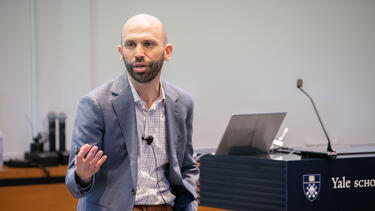
- Seth Zimmerman Associate Professor of Economics
Q: What project are you undertaking with your academic career?
I study the economics of education. My goal is to understand how education shapes big-picture outcomes like inequality, upward mobility, and economic growth. I’m looking across educational levels from early childhood through college to think about the value of education both as instrumental to our economic lives and as an intrinsic good. I want to help provide evidence for which education policies are effective in promoting the ambitious goals that we set for our education system.
Q: A number of people reading this will be asking, is college worth it?
On average, yes. It’s not worth it for everybody, but it’s a very good bet. I think people underrate it. If you look at the data, in 2019, the wage gap between college grads and those who didn’t graduate college was near a 100-year high. So while it’s true costs are going up, on average the return is really big.
Q: Given that college is expensive, the “on average” is a significant qualifier for those who are making choices as individuals.
That’s a real concern. For governments looking at the total student population, the average return of a college degree really is the relevant thing, and the data show it clearly has real value. But for an individual, what matters isn’t the average experience; it’s their own experience.
There’s a zeitgeist that says, ‘Let’s face it: college just isn’t worth it for most people. You’re better off training in a trade.’ While I agree that college isn’t for everyone, I wanted to address it as an empirical question.
Inevitably, some people will see returns outside the average—both below and above. And for individuals who accept the risk of taking on debt and something happens so that they don’t get a degree, “debt and no degree” is what’s relevant.
It used to be the states funded public higher education to a great extent. Since the 1990s, the cost of college has shifted so that it’s borne by students rather than state taxpayers. I’m concerned that we’re expecting individuals and families to take on risks they’re not well-equipped to bear. Even so, when asked whether more people should go to college—given the way we have our educational system organized now—my answer is yes.
Q: The other qualifier is that “college is not for everybody.” Would you explain how your work tries to put some data behind who does benefit?
There’s a zeitgeist that says, “Let’s face it: college just isn’t worth it for most people. You’re better off training in a trade.” While I agree that college isn’t for everyone, I wanted to address it as an empirical question. I looked at students who didn’t do incredibly well in their high school grades or on their standardized tests. Does it make sense for people who aren’t that well-prepared academically to go to college?
You can’t answer that question just by looking at students who go to college and comparing their earnings to those who don’t. You need to find a way to look specifically at the outcomes for minimally qualified students who decide to go to college. I looked around to find a circumstance that provided a natural experiment. I found it in Florida.
The least selective campus within the state system—which at the time was Florida International University—has a sharp grade cutoff. I was able to compare students admitted with grades just above the cutoff with students just below the cutoff.
What I found surprised me, at the time. Students who barely met the admissions criteria graduate at rates similar to the overall population of students at that university. Students who were just admitted saw their earnings rise by 22%, or about 11% for every additional year of college they attended. This is similar to what we see on average in the broader population, and more than enough to outweigh the costs of attending college.
It changed my mind about who benefits from college. I think it’s maybe changed some other people’s minds, too. Added to that, there have been a number of other papers since that found similar results.
It got me thinking, OK, marginally prepared students, that’s one important parameter, but it’s one of many in the higher education system.
Q: You’ve also looked at who benefits the most from attending elite colleges.
I was at Yale, so it was on my mind. Graduates of elite institutions end up in top roles, but what’s attributable to the students selected and what’s the causal effect of the college itself?
I was curious to know whether we could apply a similar quasi-experimental approach. It’s tricky in the U.S., because the top schools have admissions processes that aren’t typically amenable to isolating any single variable. But in Chile, there’s a set of elite schools that produced a big share of CEOs, government leaders, and very high-income earners, and the admissions process is based on a set of scores that are publicly observable. I was able to get insight into the role of elite higher education in producing top outcomes.
Q: What did you find?
For men who went to one of a relatively small set of fancy private schools, getting into one of the top programs of study at an elite university gave a big boost to their chances of rising to the very top of the business leadership and income levels. For example, into the highest 0.1% of incomes.
However, for women and for men who didn’t go to one of those private schools, graduating from the top programs at the top universities didn’t lead to the very top jobs or incomes.
To say it slightly differently, these schools are causally important in attaining top positions, but, at least in Chile and for the business-focused positions I studied, those benefits only go to some. Rather than reducing inequality, elite schools tend to expand gaps by baseline socioeconomic status. This is really quite a different finding than you see at the bottom part of the college distribution, where it seems like public universities create a leveling effect. It’s also different from what I found when I looked at other fields of study, such as medicine, which can lead to high incomes but typically not to the very top of the distribution or to top corporate roles.
Q: Why the difference?
There’s suggestive evidence that people are meeting at college and forming bonds that are valuable later. If it’s networking and social interactions at elite universities that generate these top roles, that would be an important thing to know because it would shape what we think the value proposition is for universities.
It’s a common trope—what’s valuable about attending an elite school is the Rolodex as much as what you learn. But again, is there evidence to back up this broadly held belief? In Chile, there wasn’t much in the data to tell us precisely what was happening. Or why we saw this differential effect by group.
Trying to understand, I worked on a project with Valerie Michelman, who now is a post-doc at Brown University, and Joseph Price of Brigham Young University.
Historically, Harvard kept great records of who was in what club. So we examined the impact of being chosen to join the school’s most prestigious social clubs in the 1920s and 1930s. Did differences in who you socialized with and what clubs you belonged to shape long-term outcomes? We focused on careers in finance as an outcome of interest, along with earnings. What we found both confirmed and gave context to the previous work in Chile.
Joining exclusive social clubs in college led to big differences in earnings. And students from a small number of fancy private schools were more likely to join these clubs.
It added to the evidence that in certain contexts the social element of college is important. And it may be differentially available to people from different parts of the socioeconomic status distribution.
Q: You have another line of research connected to the New Haven Public Schools.
I got my PhD at Yale. I started working with the New Haven Public Schools early in graduate school. At the time there was a massive school construction program. Everyone saw the buildings going up. I was curious whether investments in capital improvements led to better educational outcomes.
There wasn’t a compelling answer in the literature, so I worked on finding an answer with Chris Nielsen, who was a fellow doctoral student then and is now a professor in the economics department at Yale and my frequent co-author.
We discovered that school construction paid off with improved standardized test scores, increased school enrollment, and neighborhood home price gains.
In doing that research, we got to know people inside the New Haven Public Schools—practitioners and families. We came to understand the challenges they face and that has led to a long-running and deep collaboration.
Q: That’s how the work on the mechanics of school choice came about?
Right. This is work with Chris Neilson and also with Adam Kapor, who was another PhD classmate at Yale and is now a professor at Princeton, as well as with Felipe Arteaga, a PhD student at Berkeley.
School choice is a confusing process. When we started, nobody had done the work to see whether families participating in the choice process had the information they needed to put together their best applications to the school choice system. The approach the schools used asked families to solve a complicated strategic problem in order to submit their best application. They needed to understand not just which schools they liked, but also their chances of getting into each school given their application, which in turn depended on knowing the system rules and who else was applying to what school. We conducted surveys of participating families and found they generally did not know all of this. The system was frustrating and expected too much.
Our research suggested it made sense to change to an approach that didn’t demand an informed strategic method of families. We worked with New Haven to improve the algorithm. But once we got the back end—the algorithm—right, then it became clear we needed to make the front end work better.
The problem is that learning enough about a school to want to send your kid there can be hard, and you may not want to spend the time to do it if you think you’re going to get into a school you already know about and like. But what if you’re wrong about your chances? Then you might not apply to enough schools, and you might not get into any school on your application. We were able to implement a system that warned parents that they were submitting applications where the student was unlikely to get a spot. It created an opportunity to revise the list, and many parents did.
We also built a relationship with education officials in Chile and worked with them to apply the approach in Chile’s national choice system. A crucial step here was that Chris founded an NGO to provide school choice services, which let us do all of this at scale.
Q: This research tackles questions schools are struggling with in the moment.
It’s an approach that works for finding important questions. Talk to people involved in school districts. Listen to the issues they are grappling with. See what the scientific literature has to say. If there aren’t good answers—and in my experience, there’s rarely already a compelling answer—it’s a good place to make a contribution, both to the scholarship and to evidence-based guidance for schools.
And if you go back to them with an answer, they’ll often be receptive because they were involved in the process of generating the question itself.
Q: Education has been around for a long time. Why aren’t there good answers available?
For many reasons. These are hard things to learn about. One challenge is data and measurement. It’s only relatively recently that we began to assemble the kinds of large-scale data sets that permit us to answer these kinds of questions.
Even aside from the data, this is a world where there are so many policies that interact with each other. It’s really hard to unpack the underlying structure of causal relationships. Is this one policy causing this one outcome? Beyond that, context matters. Things that work in one place may not work in another. Knowledge is contingent—place to place and over time. The challenges that education policymakers face in 2024 are in some ways similar to the ones in 2004 or 1984, but in some ways they’re different. Things that worked 20 or 40 years ago may or may not work now.
And after all that, when research offers evidence for a certain policy, as schools move to implement, choices made by administrators, teachers, families, and students likely modify the recommended policy. The result may augment or diminish the desired outcome. That requires additional study to figure out.
There’s this very challenging process of knowledge creation, coupled with a constantly moving target that makes it difficult for people trying to confidently make education policy. So even as we’re making progress, the questions we’re facing are always evolving.
Q: Is that exciting, daunting, frustrating…?
I feel very lucky to get to do this work. Curiosity is a driving force for me. It’s rewarding to come to a point where I understand one little part of the terrain in a way that I didn’t before. Maybe in a way that nobody has before, at least for this exact application.
At the same time, it’s very hard to translate research into policy. You can do good research and for various reasons it may not actually shape the world very much. That’s reality. But it’s so meaningful when policymakers do act on knowledge I helped create. If I can hit that benchmark a few times in my career, that’s pretty good.
Q: Education policy isn’t just about the curriculum for a given subject area or the books that go into the school library. How do you think about the context of your work?
I think the purpose of education is to promote human flourishing through a variety of means—economic opportunities, enjoyment of life, enjoyment of the educational process itself, through participation in civil society, and so on.
So much of what we see happening in society is, in some way, downstream of what happens in schools. That’s what makes this such an important area to study. Research on education can be a lens on many other elements of what’s happening in the broader world. There’s a lot to be done. There always will be.
Q: Why did you choose Yale SOM as the place to do the work?
Business school students tend to be practical. They want to go out there and do stuff, change things. That’s what I want to do too.
On top of that, The Broad Center, which is dedicated to strengthening public education and fostering career development for educational administrators, makes SOM a great place to do education research.
Q: What’s next for your work on higher education?
My previous work at elite institutions suggested that it’s hard to dislodge entrenched power structures. My more recent work, which is still in process, suggests that over multiple generations, efforts to ensure widespread opportunity pay off.
Again, the earlier work in Chile found that those who reached elite universities without attending elite private schools didn’t become CEOs or top earners at the same rate as those who did attend private schools. However, the children of those who hadn’t attended private schools are more likely to attend the fancy private high school and have friends who are high status. It seems that those kids are better equipped to be part of the higher social status and better able to integrate in elite universities.
In some cases, the answer to reducing inequality is that you have to be patient. And that’s hard because we only live once.
Q: What about the work on public-school systems?
I’ve been working to understand how our education system impacts not just students but their families. One question I’ve been looking at is how access to early childhood education affects labor outcomes for parents.
And I was recently appointed to the Connecticut State Board of Education. As a researcher, I believe in implementing evidence-driven policy. My hope is to shape policy for the better, and also that this volunteer role will help me understand what evidence is relevant and helpful in making policy.
WELCOME TO THE FAMILY! Please check your email for confirmation from us.
Mr. President: If you force me to choose, you will lose
OPINION: The Biden administration's proposal to cut funding to the Charter Schools Program will leave parents little choice come November.
- Share on Facebook
- Share on Twitter
- Share via Email
- Copy Link Link Copied

Editor’s note: The following article is an op-ed, and the views expressed are the author’s own. Read more opinions on theGrio.
I vote in every election. When it comes to casting a ballot, whether it’s for president, Congress, state legislators, governor, mayor or city council, I am always going to vote based on what’s best for my child. There is nothing a candidate can say about any issue that will change this calculus. If I don’t believe my child will be better off with that person in office, they will not get my vote.
And I am not alone. There are millions of Americans — white, Black, Hispanic, Democrat, Republican, rural, suburban, urban — who will make the very same decision come November. Choosing to put our kids first is not a political issue; it’s just how we are wired.
This is why President Biden faces significant headwinds as we approach November. And so do other Democratic candidates up and down the ballot who seem to be unclear about the priorities of some of their most important constituents, parents.
Parents of K-12 students make up 40% of the U.S. electorate and according to a survey commissioned by the Harris Poll, 82% of them are willing to vote outside their political party based on the candidate’s position on education, which is a particularly acute issue for Black mothers like me.
For decades, we have been promised that brighter days are ahead and that elected leaders are working toward creating equity in areas like education and the workforce. But now we are tired of waiting. We want something better right now.
That is why it was initially encouraging to hear during the State of the Union address when President Biden announced a laudable goal of all children reading by the third grade. The optimism was short-lived.
Just a couple of days later, President Biden’s proposed budget called for cutting investments in charter schools , which predominantly serve Black and brown students.

Debbie Veney

Why Kanye West is being sued for ‘anti-Black’ discrimination
TheGrio Staff
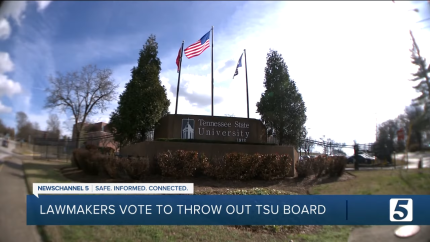
Politicians strip Tennessee State University, the state’s only publicly funded HBCU, of its board
Associated Press
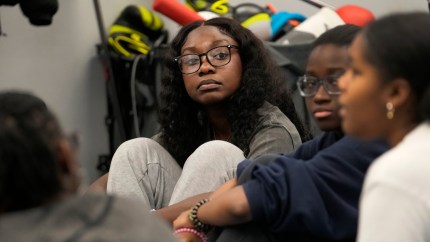
Sob stories? Trauma dumps? Black kids worry about writing college essays after affirmative action ban

Student loans to be canceled for 78,000 more public workers
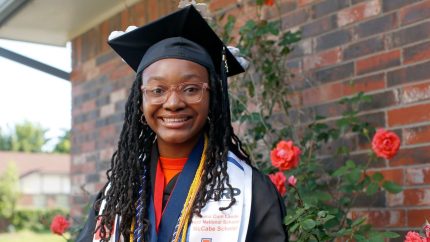
America’s youngest teacher is a 16-year-old MBA student
TheGrio Lifestyle

Sculpture park provides unflinching look at faces and lives of enslaved Americans

Watch: A new documentary highlights Black boarding schools
I was understandably puzzled. How, exactly, are we supposed to get to this laudable goal by slashing the only source of federal funding for the startup, growth, replication, and expansion of these public schools that serve our students so well? There is never a cost to attend a charter school and, according to research from Stanford, the average charter student gains an equivalent of 16 additional learning days in reading in a year, and six additional days of learning in math.
It’s hard to interpret a proposed cut to the Charter Schools Program as anything other than harmful to our children.
We want our kids to at least have a fighting chance at achieving their dreams. We want them to be prepared for great careers that will help diminish income inequality. We are not talking about theories and hypotheticals. These are our children, and it is time to move with more urgency.
I am reminded of Martin Luther King Jr.’s April 1963 letter from Birmingham Jail , in which he responded to those encouraging Blacks to just “wait.”
Dr. King remarked, “There comes a time when the cup of endurance runs over, and men are no longer willing to be plunged into the abyss of despair. I hope, sirs, you can understand our legitimate and unavoidable impatience.”
Sixty years later, we remain impatient and rightfully so. Black children are still behind their white peers in reading and math. Their median weekly earnings , among those ages 16 to 24, is $133 less than white workers. And they are far more likely to end up in poverty or prison.
It is no wonder that according to a recent poll of Black single mothers, 69% believe the country is heading in the wrong direction and only 7% believe it’s on the right track. Fatigue is making us quite restless. Black women voters are an important voting bloc. Why? Because we tip elections.
To begin to rebuild trust, President Biden must demonstrate that he’s listening to us.
He must show that he understands the value Black voters place on education and having better public school options by demonstrating his support for the schools we choose. President Biden must understand that if we’re going to reach the literacy goal he set out, it’s only achievable if Black and Brown families can actually access high-quality schools.
My home state of Florida can serve as a cautionary tale for President Biden. In 2018, Andrew Gillum ignored the wishes of Black voters and came out against school choice options that met the needs of underserved communities throughout the state. Gillum received around 40,000 fewer votes among Blacks than fellow Florida Democrat Bill Nelson received in his Senate race that same election day. Gillum lost to Ron DeSantis by 32,463 votes .
President Biden, do the math and please don’t take our vote for granted.

Debbie Veney is a senior vice president at the National Alliance for Public Charter Schools.
Never miss a beat: Get our daily stories straight to your inbox with theGrio’s newsletter .
- Share on Facebook Facebook
- Share on Twitter Twitter
- Share via Email Email
- Copy Link Copy Link Link Copied

STREAM FREE MOVIES, LIFESTYLE AND NEWS CONTENT ON OUR NEW APP

IMAGES
VIDEO
COMMENTS
Introduction. University education refers to a level of education that is offered at universities. This type education normally follows upon a successful completion of education at secondary school or other mid-level colleges and tertiary institutions, students are normally awarded academic degrees after going through an undergraduate or a postgraduate education by the respective universities.
1. Many today would argue that higher education is a basic right that should extend to all, regardless of socioeconomic background. 2. In my opinion, I largely disagree since there is more value in improving the relationships between social classes. Paraphrase the overall essay topic. Write a clear opinion.
6 Examples of Essays About University. 1. Compare and Contrast Between State University and Private University by Naomi Moody. "Many people assume a public college is cheaper than a private college because of tuition fees are reduced for state residents. But the posted "sticker price" of a private college is rarely the real price.
or personal benefits) and new growth theory as noted within several education policy reports by Columbia University's Center for Analysis of Postsecondary Education and Employment (CAPSEE) and Georgetown University's Center on Education and the Workforce (Avery & Turner, 2012; McArthur, 2011; Psacharapoulos & Patrinos, 2004).
The aims of higher education change over time. In the United States, the original purposes were to prepare students for a few "learned professions," especially the clergy, and to provide a ...
April 11, 2018. This interview was conducted at the Yale Higher Education Leadership Summit, hosted by Yale SOM's Chief Executive Leadership Institute on January 30, 2018. The value of a college degree can be measured in a number of different ways: increased lifetime earnings potential, a network of classmates and fellow alumni, subject ...
Cultural and social experiences. have benefits in workplaces. learn how to be independent. graduate salaries are worth it. make a positive impact on society. wider employment options. Cultural and social experiences as well as the education, a uni degree provides you the advantage of broadening your limits.
In this essay, two opposing opinions need to be discussed. This is the first opinion: The aim of university education is to help graduates get better jobs. This is the second opinion: There are much wider benefits of university education for both individuals and society. As the prompt suggests, you MUST talk about both sides of the issue and ...
On average, the body comprises 60-80% of your essay. For a high school essay, this could be just three paragraphs, but for a graduate school essay of 6,000 words, the body could take up 8-10 pages. Paragraph structure. To give your essay a clear structure, it is important to organize it into paragraphs. Each paragraph should be centered ...
More fundamental changes will take longer to achieve but could eventually yield even greater gains in the quality of undergraduate education. They include: Improving graduate education. Colleges and universities need to reconfigure graduate programs to better prepare aspiring professors for teaching. As late as two or three generations ago ...
College essay example #1. This is a college essay that worked for Harvard University. (Suggested reading: How to Get Into Harvard Undergrad) This past summer, I had the privilege of participating in the University of Notre Dame's Research Experience for Undergraduates (REU) program .
Essays on Higher Education and Inequality Abstract This dissertation consists of three essays at the intersection of higher education and inequality within the field of economics of education. The first essay estimates the effects of adopting an instructional approach blending online and in-person elements called the emporium
The Importance of University Education Essay. November 10, 2023. Office of Outreach and Relationships. University education plays a crucial role in today's society, offering far-reaching benefits beyond the acquisition of a degree. In this essay, we will delve into the significance of higher education, exploring its impact on social and ...
This essay therefore provides you with some of the key arguments about this topic. The essay is an , which means you are given one opinion and then asked if you agree with it or not. So remember to make it clear in your essay which side you are on. University education should be free to everyone, regardless of income.
And finally, university education has two diverse important that cannot be countered by illustrated is first; it helps to reach one's goal in life and pass it on to the generation ahead for example if one's goal in life include a medical or scientific profession a university education is a must. Secondly, it helps one become a better person in ...
This model answer is based on the topic of university education and whether students should learn about other subjects. It's a discussion essay so I need to cover both sides and give my clear opinion. The task was taken from the Cambridge IELTS 18 book. As I have stated before in earlier posts, use authentic IELTS material when you are ...
Examples of argumentative essay prompts. At a university level, all the prompts below imply an argumentative essay as the appropriate response. Your research should lead you to develop a specific position on the topic. The essay then argues for that position and aims to convince the reader by presenting your evidence, evaluation and analysis.
University Essay 5 (500 words) University education is a crucial element in shaping our personal and professional trajectory. It represents a critical investment in our future, equipping us with the knowledge, skills, and values necessary for success in an increasingly complex and competitive world.
Education Essay 2 (150 words) Introduction. Education is a key driver of personal and societal development, providing individuals with the knowledge and skills necessary to navigate the complexities of the modern world. ... Achieving success in university education needs commitment and dedication towards lecture attendance, approaching ...
This university education essay example proposes that the government and other stakeholders must have a round table consultation to come up with a suitable curriculum that will not only satisfy employers' need but also solve the emerging issues. Universities should train researchers, innovators, and strategists to solve global emerging issues.
Nick Kemp. Task 2 Essay: University Education (NEW) Question: Some people believe that studying at a university or college is the best route to a successful career. Do you agree or disagree? Band 8+ Sample Answer: (Intro) The question of whether tertiary education is the best path to reach success in one's profession is the subject of much ...
This essay begins by discussing the situation of blind people in nineteenth-century Europe. It then describes the invention of Braille and the gradual process of its acceptance within blind education. Subsequently, it explores the wide-ranging effects of this invention on blind people's social and cultural lives. ... Stanford University Press ...
Essays in Education (EIE) (ISSN 1527-9359) is a peer-reviewed, open access online journal. EIE seeks to engage education practitioners across disciplines to aid in the timely dissemination and practical application of relevant education research. EIE is a Winona State University (WSU) journal coordinated by WSU faculty.
I study the economics of education. My goal is to understand how education shapes big-picture outcomes like inequality, upward mobility, and economic growth. I'm looking across educational levels from early childhood through college to think about the value of education both as instrumental to our economic lives and as an intrinsic good.
Education. Mr. President: If you force me to choose, you will lose. OPINION: The Biden administration's proposal to cut funding to the Charter Schools Program will leave parents little choice come ...